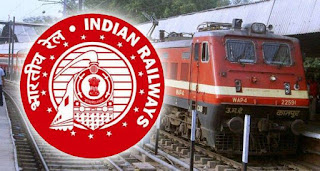Indian railways announced that can able to Change Passenger name in IRCTC Reserved Ticket
CHANGE OF NAME OF A PASSENGER ON CONFIRMED
RESERVATION TICKET
(i) Government servant proceeding on duty on production of a letter from the appropriate authority.
(ii) Between family members due to unavoidable circumstances, viz. father, mother, brother, sister, son, daughter, husband and wife. No cancellation and reservation charges are recovered in this case. The station Manager will be competent to permit alteration of reservation under the condition mentioned above.
(iii) However, in case of group travelling together, party's written request should be tendered in writing 48 hours before scheduled departure of train and change of name is not permitted in excess of 10% of total strength of the group/party.
Change in the Name of Passenger Holding Confirmed Reservation
1. Save as otherwise, a berth or a seat reserved in the name of a person shall be used only by the person and shall not be transferable to any other person.
2. Chief Reservation Supervisor of important stations are authorized by Railway Administration to permit the change of name of a passenger having a seat or berth reserved in his name in the following circumstances namely :
(a) Where the passenger is a Government Servant, proceeding on duty and appropriate authority, makes a request in writing 24 hours before the scheduled departure of trainsSuch request will be granted only once. Regarding item no. (c), (d) and (e), such request for change in excess of 10% of the total strength of group shall not be granted.
(b) Where the passenger makes a request in writing 24 hours before the scheduled departure of the train that the reservation made in his name may be transferred to another member of his family, meaning, Father, Mother, Brother, Sister, Son, Daughter, Husband and Wife.
(c) Where the passengers are students of a recognized educational institution and the Head of the institution makes a request in writing 48 hours before the scheduled departure of the train, that the reservation made in the name of any student be transferred to any other student of the same institute.
(d) Where the passengers are members of a marriage party and any person deemed to be Head of such party makes a request in writing 48 hours before the scheduled departure of the train that the reservation made in the name of any member of the marriage party be transferred to any other person.
(e) Where the passengers are a group of cadets of National Cadet Corps and any officer who is the head of the group, makes a request in writing at least 24 hours before the departure of the train that the reservation made in the name of any cadet be transferred to any other cadet.
Source: www.indianrailways.gov.in











